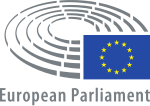The Conference of Parliamentary Committees for Union Affairs of Parliaments of the European Union (COSAC) is a conference of Members of the European Parliament (MEPs) and national Members of Parliament (MPs) who are drawn from parliamentary committees responsible for European Union affairs. [1]






